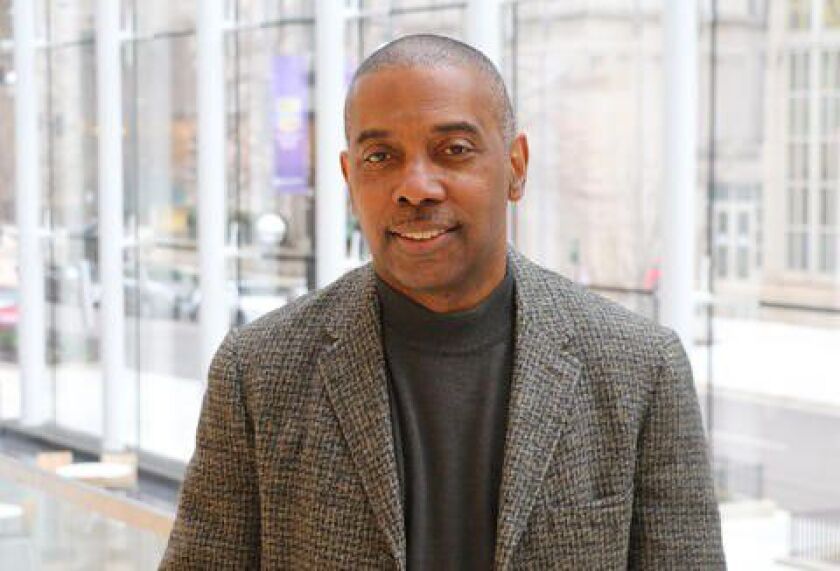Twelve months ago, Chicagoans were in a terrible place of trauma and despair.
Just as people had to isolate themselves because of the deadly coronavirus pandemic, the murder of George Floyd in Minneapolis sent waves of shock and anger across the country.
In Chicago, as in other cities, people reacted with lawful, passionate protests. Others reacted with unchallenged thievery from businesses, including those needed in Black and Brown neighborhoods already starved of jobs and commercial activity.
A year later, where are we, really? Social and economic challenges are just as gaping as ever. A few days ago, when the warm weather took hold, the Magnificent Mile started looking like its old touristy self and young people, with hardly a mask in sight, returned to the shops and restaurants of the hipster areas.
But in the unprivileged parts of town, the grotesque ritual of shootings played on.
Businesses, foundations and governments have been generous in the recovery. Grants and loans have stabilized many small businesses. But there’s also an unmet need for new investments and energy. Melvin Thompson and Brian Fabes are answering the call.
Thompson runs the Endeleo Institute in Washington Heights on the Far South Side. Fabes is the managing director of the Corporate Coalition of Chicago, a group that took shape last year with high-powered backing. The aim was to go beyond traditional philanthropy to something more hands-on.
“We’re trying to be action-oriented,” Fabes said. Philanthropy is critical, but his “coalition of the willing” is “focused on what companies can do today,” he said.
The coalition helped Thompson with a project he sees as a key to improving a stretch of 95th Street. Endeleo has acquired and is expanding a vacant building at 325 W. 95th to turn it into a coffee shop and laundromat called Café DuBois, a $1.2 million project due to open in late fall.
Pesky lenders wanted a business plan, and Thompson got help for that from a team Fabes could summon. “They put together a marvelous, stunning business plan. It changed the trajectory of our organization,” Thompson said. He also cited a bridge loan from IFF, formerly called the Illinois Facilities Fund.
He hopes the business will demonstrate the area’s potential for other investment while continuing positive momentum in Washington Heights. In 2018, the city opened an enlarged Carter G. Woodson Regional Library at 95th and Halsted streets.
“People told me for years it would never happen, that that kind of money wouldn’t be spent here,” Thompson said. The next year, the CTA finished its bright terminal for the Red Line at 95th.
Despite the months of awful news affecting Black communities, Thompson said local optimism is popping up, some of it from faith that a national enlightenment about racial disinvestment will bring change. People are bringing him development ideas for other properties, and the real estate firm CBRE is now on the case. “What I’m hearing is that the belief system has been reactivated,” he said.
Endeleo — the word is Swahili for progress and development — is recruiting a grocery store to the fresh-food desert. Thompson said it should be a reality by the end of 2022.
He’s also helping the Greater Chicago Food Depository open what he calls a “21st century food pantry” at a 95th Street site to be disclosed. The emphasis is on healthy items and people can choose what they want to “destigmatize the notion of free food,” he said. It should be ready in December.
Fabes’ coalition counts corporate backing from AT&T, Fifth Third Bank, Boeing and many others. Launched with seed money from The Chicago Community Trust, it can draw on the know-how of nonprofits such as the Chicagoland Chamber of Commerce and Skills for Chicagoland’s Future.
Fabes is raising a $50 million equity fund for “catalytic” projects in the neighborhoods, and there’s a separate program for technical support to bring projects to fruition. Another initiative helps employers meet the needs of workers going through trauma.
Some of this comes from employees who want to see their companies address long-standing social problems, Fabes said. “The next generation of employees will be a voice and will expect change,” he said.
These changes take time. Economic development, in particular, can tax even the most patient person. East of Washington Heights, for example, is Pullman, widely acclaimed for blossoming with industry and retail but that took years of work.
Thompson is applying that model by marketing to his area’s innate assets: It has one of the highest percentages of single-family homes in any Chicago community, so there’s a stable market for businesses that rely on local trade. Other areas need to take their own inventories.
Fabes counts himself as a long-term optimist about Chicago neighborhoods. “A lot of important things are happening,” he said, taking a breath to add, “We have so far to go.”







